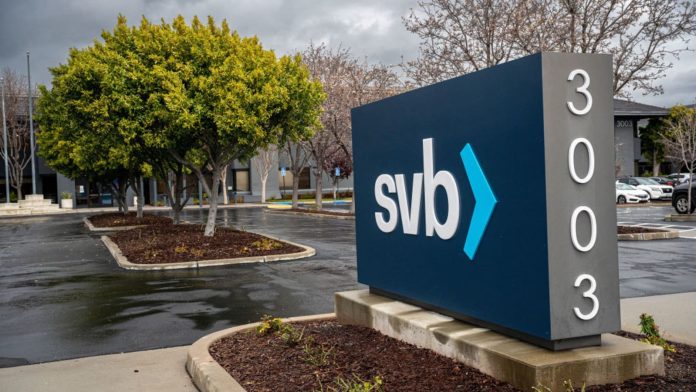As of this morning, hundreds of billions in assets have been seized by the U.S. Government as Silicon Valley Bank (SVB) failed to shore up its finances. The Federal Deposit Insurance Corporation (FDIC) assumed control in tandem with state regulators.
SVB Financial Group, based in Santa Clara, California, abandoned plans to raise capital to stabilize its finances and failed to find a buyer or receive a form of rescue due to widespread customer withdrawals. These outflows have magnified stakeholder concerns regarding its ability to perform its duties. The bank’s shares have suffered a sharp decline, falling 68% in premarket trading before the stock was halted. The bank was forced to cancel the planned $2.25 billion sale of shares and other securities. Advisory firm Centerview Partners and law firm Sullivan & Cromwell LLP were brought in to help SVB assess its options, including a possible sale to a large financial institution. SVB caters mainly to startups and the investors that fund them, an ecosystem that has suffered since the Federal Reserve began raising rates last year to curb inflation. Rising interest rates have also affected the bank’s bond holdings. The bank’s announcement that almost $2 billion in assets are lost following a sizable decrease in deposits has caused concern among investors, and stakeholders within the tech space have been eager to get their deposits back. The developments have destabilized the $212 billion asset firm and have had a negative impact on the entire industry, with the four largest U.S. banks losing some $52 billion in market value on Thursday and a broader index of bank stocks experiencing its worst day in nearly three years.
Per the FDIC:
“Silicon Valley Bank, Santa Clara, California, was closed today by the California Department of Financial Protection and Innovation, which appointed the Federal Deposit Insurance Corporation (FDIC) as a receiver. To protect insured depositors, the FDIC created the Deposit Insurance National Bank of Santa Clara (DINB). At the time of closing, the FDIC as receiver immediately transferred to the DINB all insured deposits of Silicon Valley Bank…All insured depositors will have full access to their insured deposits no later than Monday morning, March 13, 2023. The FDIC will pay uninsured depositors an advance dividend within the next week. Uninsured depositors will receive a receivership certificate for the remaining amount of their uninsured funds. As the FDIC sells the assets of Silicon Valley Bank, future dividend payments may be made to uninsured depositors.”
For context on the scale of this failure, a few details need to be examined.
– SVB experienced a significant increase in deposits in 2021, increasing from $61.76 billion at the end of 2019 to $189.20 billion at the end of 2021.
– SVB was unable to expand its loan book quickly enough to produce the yield they desired on this capital as deposits increased. They used these deposits to fund a substantial (over $80B) acquisition of mortgage-backed securities (MBS) for their hold-to-maturity (HTM) portfolio.
– 97% of these MBS products had a term of ten years or more and had an average weighted yield of 1.56%.
– The problem is that the value of SVB’s MBS fell as interest rates were increased by the Fed starting in 2022 and extended into 2023. This is because the Fed is currently offering long-term “risk-free” bonds to investors at a 2.5 times higher yield.
– As these securities will eventually pay out more than they cost, there is no liquidity problem as long as SVB keeps its deposits.
– This afternoon, SVB reported that they were raising an additional $2.25 billion in stock and debt after selling $21 billion of its Available For Sale (AFS) securities at a $1.8 billion loss. Investors were taken aback because they believed SVB had sufficient liquidity to keep their AFS portfolio intact.
It is not clear what other decisions the Federal Government will make in the weeks and months ahead. However, the financial and societal implications for such a move could shadow the decisions the U.S.G. made in 2008-2009, and the forward-looking picture for comparable financial institutions may get grimmer as The Federal Reserve could continue to raise interest rates, which could trigger wider cracks in the portfolio of every bank in the United States.


